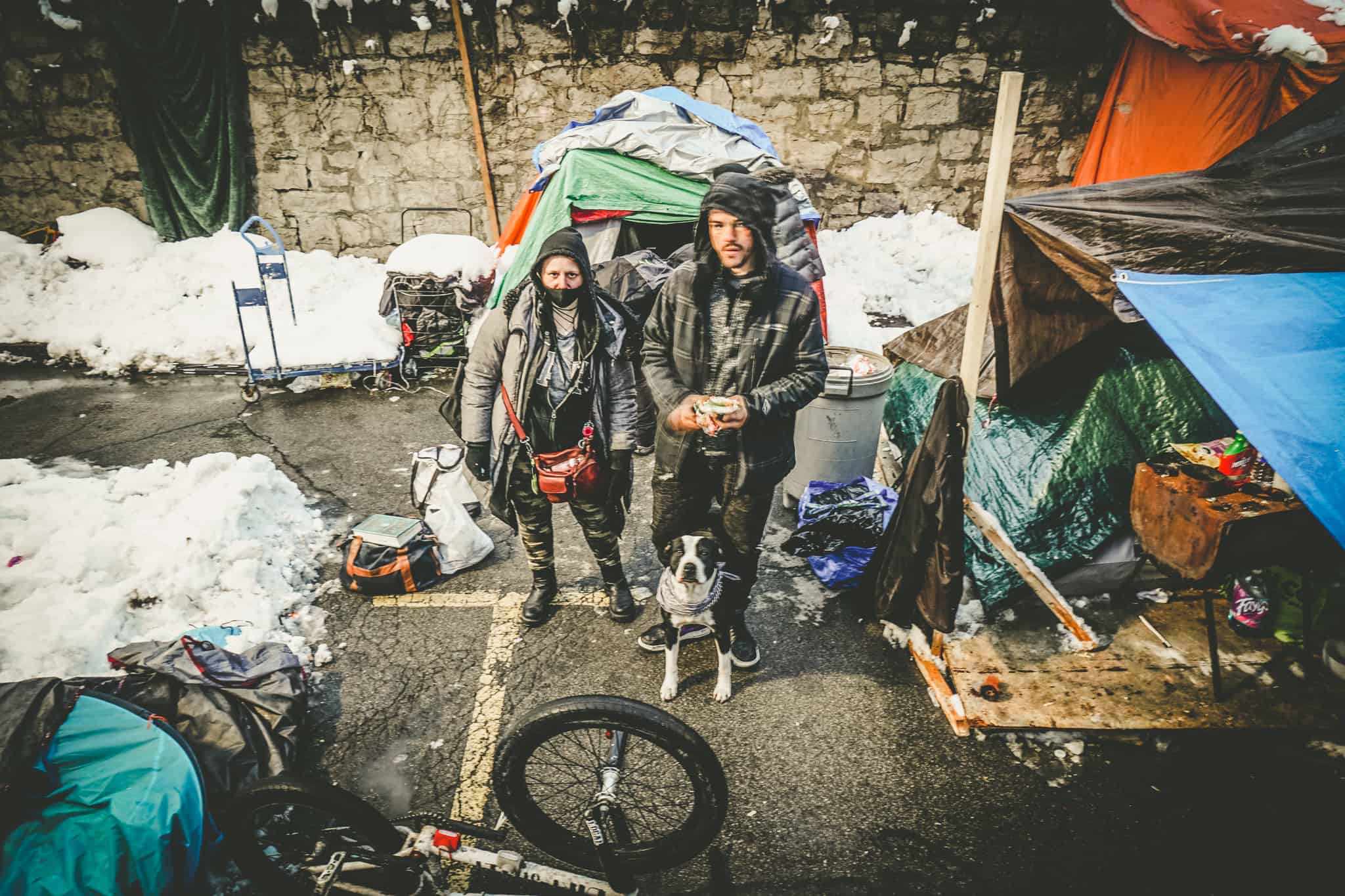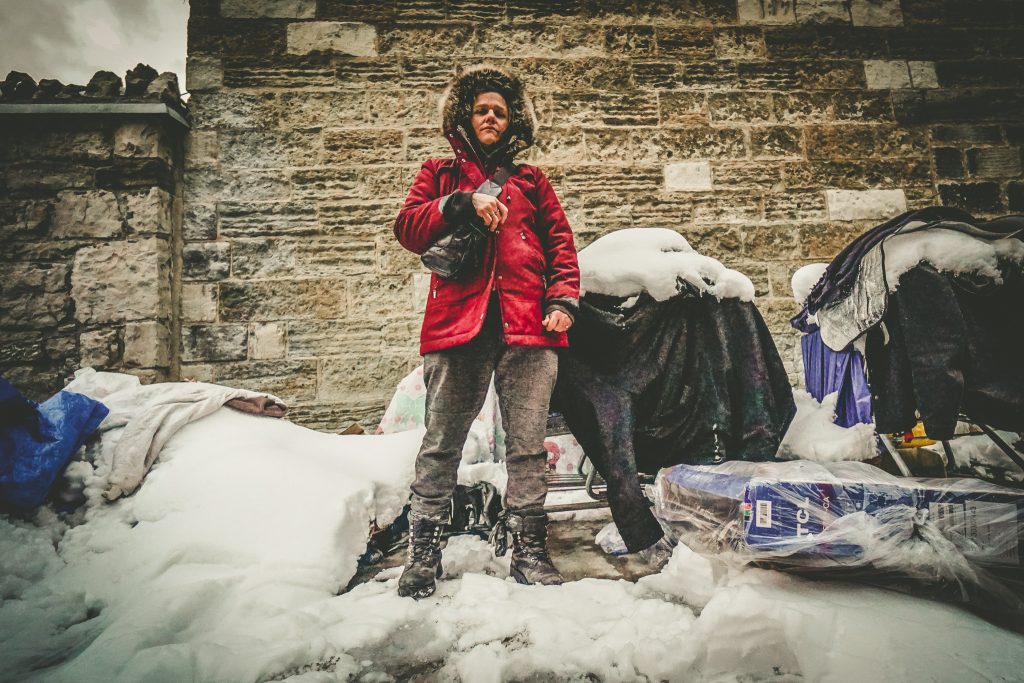Amid ‘significant’ pressures in shelter system, Hamilton boosts aid for homeless this winter
Published November 1, 2023 at 6:44 pm

With the number of people living outside expected to be greater this winter, Hamilton plans to bolster services and supports for people who are homeless.
Michelle Baird, director of Housing Services, highlighted the annual winter response strategy as Hamilton’s response to homelessness, which was declared a state of emergency. The strategy was ratified on Sept. 13. It will cost the City $1,499,588, funded through the tax stabilization reserve.
“The strategy outlines the City’s immediate and longer-term actions to support vulnerable individuals within the homelessness serving system,” Baird said in a recent email to hamilton.insauga.com. “This approach leverages partnerships with providers in the homelessness-serving sector and utilizes City facilities such as recreation facilities, the Hamilton Public Library and a transit bus.”
Baird said key parts of the strategy include 100, year-round daytime drop-in spaces. These spaces serve “to help meet the basic needs while fostering trust and facilitating connections to additional housing resources,” she explained.
Moreover, 100 overnight warming drop-in spaces will provide access to basic services and a warm location at a cost of about $584,154.
Warming spaces will have seating, washrooms, warm beverages and light snacks between 8:30 p.m. and 8:30 a.m., the City’s report said. Toiletries, wi-fi, showers and laundry may also be provided.
As well, a Hamilton Transit overnight warming bus will be available with staff to support homeless people. The cost for the warming bus is estimated at $217,550.
Operating hours at three recreation facilities and the Hamilton Public Library Central location will be expanded to allow them to operate as warming spaces on statutory holidays and other days the facilities are normally closed, Baird added. The three recreation facilities’ hours will stretch to 11:30 p.m., which will cost about $103,660. The central library will operate as a warming space during opening hours and holidays at a cost of about $10,070.
The homelessness strategy covers the period from Dec. 1, 2023 to March 31, 2024.
Baird said the City will have an updated list of resources during cold alerts at www.hamilton.ca/cold.

HUMAN BEINGS OF HAMILTON FACEBOOK PAGE
Shelter system faces ‘significant’ pressures, staff shortages
This report presented to council and ratified in September noted the “significant” pressures facing the shelter system since before the COVID-19 pandemic, including staffing shortages. It said “shelters have limited ability to admit additional users above their normal maximum capacity as a viable option.”
“The issue has worsened as a result of a severe lack of affordable housing, impacts of the opioid emergency, lingering bottlenecks from the COVID-19 pandemic, and long lengths of stay in the shelter system,” the report stated. “As a result, there (is) a lack of spaces for people experiencing homelessness to stay warm overnight.”
The report underscored the urgency of the matter, pointing out that the number of people living in encampments has increased throughout the city. Last year, 50 people stayed outside during winter months, the highest on record to date. The City expects this number “to be much greater” this winter.
Demand for drop-ins and overnight warming spaces remains high, according to the report. Hamilton’s drop-in programs currently serve about 552 individuals per quarter. It gave the example of Carol Anne’s Place (daytime) and Willow’s Place (overnight), which offer a total 44 spaces, or 22 each for women and “female-identifying individuals.” Funding for these two programs expires on March 31, 2024, so staff are recommending that it be continued so they can operate year-round.
The City has explored another way to help the homeless through tiny shelters, or small heated cabins that would have security and washrooms on site. However, the project was controversial and sparked strong opposition from residents in the North End who had safety concerns and said they were not consulted about it. The City and Hamilton Alliance for Tiny Shelters, which would’ve spearheaded the pilot this winter, decided to cancel it because the site failed to sufficiently meet “essential site selection criteria.” The alliance and the City hope to identify other possible sites for the pilot by mid-2024.
INthehammer's Editorial Standards and Policies




